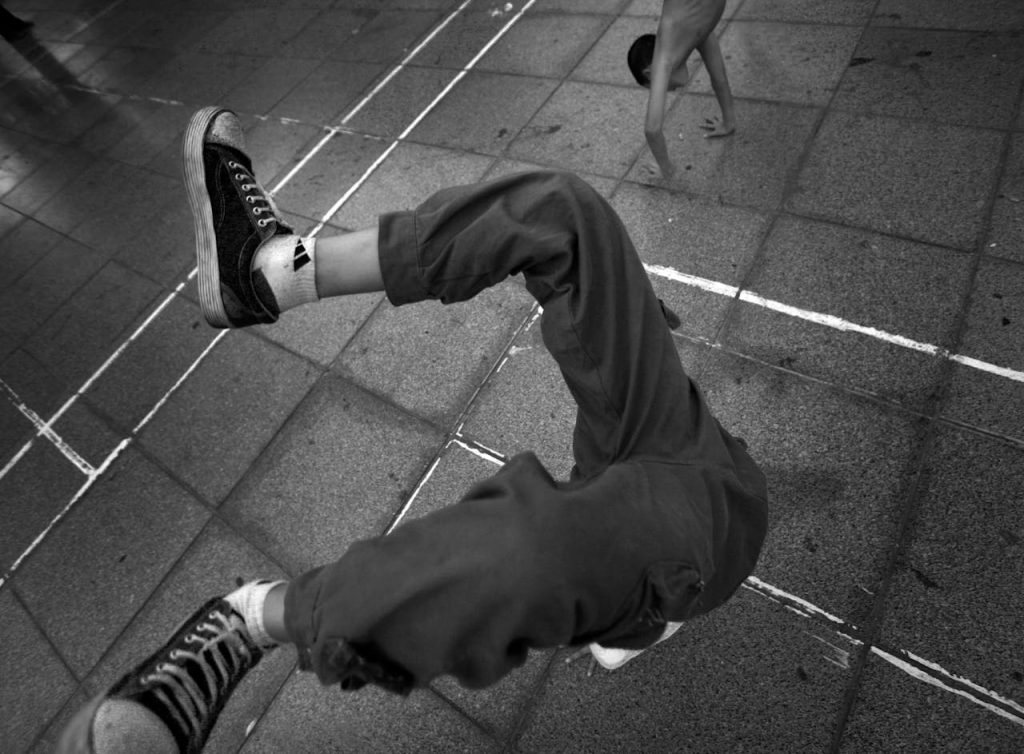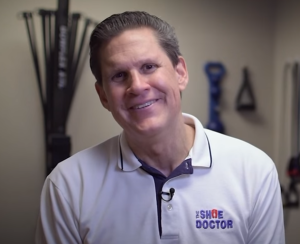Curious to uncover the foot health secrets that every experienced and expert podiatrist wishes you knew? From simple daily practices to expert tips, discover the keys to maintaining proper foot care, comprehensive foot care, and healthy and happy feet for years to come. Your podiatrist’s top recommendations are just a scroll away. Ready to step up your foot care game, use the shoe, and stride with confidence? Let’s unlock the secrets together.
Essential Foot Care Tips
Maintain Good Hygiene
Wash your feet daily to keep them clean and free from dirt and bacteria, following beneficial foot health tips for impeccable foot health. Use a separate towel exclusively for drying your feet to avoid spreading germs. Applying antifungal powder inside your shoes helps maintain dryness and prevent fungal infections.
Choose Proper Footwear
When buying shoes, make sure to try them on later in the day when your feet are slightly swollen for an accurate fit assessment. Opt for shoes with adequate arch support to reduce strain on your feet and ankles. Avoid high heels and narrow shoes as they can lead to foot deformities and discomfort.
Exercise Regularly
Engage in low-impact exercises such as swimming or cycling to protect your feet from excessive stress and impact. Stretch your feet and toes before and after workouts to enhance flexibility and prevent injuries. Incorporating balance exercises into your routine can improve stability, reducing the risk of falls and injuries.
Healthy Eating For Feet
Include foods rich in omega-3 fatty acids, such as salmon and walnuts, in your diet to help reduce inflammation in your feet. Consuming antioxidants from fruits and vegetables can promote skin health and aid in the healing process of any foot issues. Limiting sugar intake is crucial in preventing conditions like diabetes that can have detrimental effects on your foot health.
Nail And Skin Care
Correct Nail Care
Using proper tools is crucial to prevent damage to the nail bed when trimming nails. Avoid cutting them too short, as this can lead to painful hangnails. Consider using a nail file to smooth edges and prevent snags.
Manage Corns And Calluses
king feet in warm water helps soften corns and calluses before removal. Protective pads can cushion areas prone to friction, providing relief. For persistent issues, consult a podiatrist for professional treatment.
Avoid Going Barefoot
It’s essential to wear flip-flops in communal showers to prevent infections. Opt for supportive sandals outdoors to protect your feet from injuries. Avoid walking barefoot on hard surfaces to minimize the impact on your feet.
Keep Footwear Clean
Regularly disinfecting insoles is key to eliminating odor-causing bacteria and maintaining foot hygiene. Store shoes in a dry place to prevent mold growth and maintain freshness. Rotating between pairs allows shoes to air out, reducing bacterial growth.
Optimal Foot Rest And Elevation
Proper Foot Rest Techniques
Elevate your feet on a pillow while sitting to relieve pressure and improve circulation. Taking breaks to stretch and move your feet during long periods of sitting can prevent stiffness and discomfort. Using a footrest at work promotes better posture and reduces strain on your feet and lower back.
Benefits Of Elevation
Reducing swelling is one of the key benefits of elevating your feet above heart level, aiding in improving blood flow and reducing discomfort. By resting your feet on an elevated surface, you can promote better circulation and alleviate pain from prolonged standing. Elevating your feet can also help reduce inflammation and promote overall foot health.
- Reduces swelling
- Improves blood flow
- Alleviates discomfort
Risks Of Overuse
Recognizing signs of fatigue in your feet is crucial to prevent injuries such as plantar fasciitis or stress fractures. Alternating between high-impact activities like running and low-impact exercises such as swimming can help prevent overuse injuries. It’s essential to listen to your body and rest when experiencing any pain or discomfort to avoid exacerbating existing issues.
- Prevents injuries
- Alternates activities
- Listens to the body
Regular Foot Examinations
Importance Of Check-Ups
Regular foot doctor check-ups are essential for maintaining overall foot health. Schedule routine visits with a podiatrist to prevent potential issues before they escalate. Discuss any foot concerns during these examinations to catch and address problems early on. Keeping track of changes in your foot health allows you to provide your doctor with comprehensive information.
Self-Examination Tips
Conducting regular self-inspections is crucial for detecting early signs of foot problems. Inspect your feet weekly for cuts, blisters, or any unusual changes. Utilize a mirror to examine hard-to-see areas such as the soles and spaces between toes. Document any observed changes and promptly seek professional advice if necessary.
Professional Foot Care Visits
When experiencing persistent foot pain or abnormalities, it’s vital to seek professional care. Consult a podiatrist for specialized treatment tailored to your specific condition. Inquire about custom orthotics if you have chronic foot issues, as these can provide significant relief. Adhering to the recommended treatment plans is key to ensuring optimal recovery and long-term foot health.
Understanding Common Foot Problems
Athlete’s Foot Symptoms
- Identify itching, burning, or peeling skin as common signs of athlete’s foot, a fungal infection.
- Look for redness or blisters between toes as indicators of infection that require immediate attention.
- Recognize foul odor emanating from the feet as a symptom of athlete’s foot, necessitating treatment.
Bunions Causes And Prevention
- Understand that genetics and improper footwear play significant roles in bunion formation.
- Practice foot exercises regularly to strengthen muscles and prevent the development of bunions.
- Opt for shoes with a wide toe box to reduce pressure on the big toe and alleviate bunion discomfort.
Insights On Plantar Fasciitis
- Recognize heel pain, especially in the morning, as a hallmark symptom of plantar fasciitis.
- Understand that tight calf muscles can worsen plantar fasciitis symptoms and delay recovery.
- Explore various stretching and strengthening exercises to alleviate pain and improve foot flexibility.
Preventing Ingrown Toenails
- Trim toenails straight across, avoiding curved edges to prevent ingrowth and potential infections.
- Wear shoes that fit properly to reduce pressure on the toes, thus minimizing the risk of developing ingrown toenails.
- Soak feet in warm water to soften nails before trimming them, ensuring a smoother and safer process.

When To Consult A Podiatrist?
Recognizing Symptoms
Identify swelling, redness, or warmth as signs of potential issues. Be vigilant about persistent pain that doesn’t improve with rest. Changes in skin texture or color can also be indicators of concern.
Persistent Pain Or Discomfort
If pain persists for more than a few days, seek medical advice promptly. Keeping a log of activities that trigger pain can help your podiatrist understand the issue better. Avoid self-diagnosing and rely on professional assessments for appropriate treatment.
Changes In Foot Appearance
Note any sudden changes in the shape, color, or texture of your feet. Pay attention to new growths or lesions appearing on the skin. Consulting a healthcare provider is crucial if you observe unusual changes in your feet.
Final Thoughts
Taking care of your feet is crucial for your overall well-being. By following the essential foot care tips, paying attention to nail and skin care, giving your feet proper rest and elevation, and scheduling regular examinations, you can prevent common foot problems and know when it’s time to seek professional help. Understanding these aspects of foot health empowers you to take charge of your well-being and maintain healthy, happy feet for years to come.
Don’t wait until discomfort sets in; start implementing these foot care practices today to ensure that your feet stay healthy and pain-free. Your feet carry you through life, so show them some love and attention. Remember, healthy feet lead to a healthier you!
Frequently Asked Questions
1. What Are Some Essential Foot Care Tips?
Properly wash and dry your feet daily, wear comfortable and supportive shoes, trim toenails straight across, moisturize regularly, and inspect your feet for any issues like cuts or sores.
2. How Can I Take Care Of My Nails And Skin On My Feet?
Keep toenails trimmed, moisturize to prevent dry skin, avoid walking barefoot in public areas, wear breathable socks, and use sunscreen on your feet to protect from sun damage.
3. Why Is Optimal Foot Rest And Elevation Important?
Elevating your feet can reduce swelling and improve circulation. Resting your feet properly can help prevent fatigue and discomfort, especially after long periods of standing or physical activity.
4. How Often Should I Have Regular Foot Examinations?
It is recommended to have a foot examination at least once a year, even if you don’t have any specific foot problems. Regular check-ups can help detect issues early and prevent potential complications.
5. What Are Some Common Foot Problems I Should Be Aware Of?
Common foot problems include athlete’s foot, bunions, corns, calluses, ingrown toenails, plantar fasciitis, and heel spurs. Understanding these conditions can help you take preventive measures and seek timely treatment.
6. When Should I Consult A Podiatrist For Foot Concerns?
Consult a podiatrist if you experience persistent pain, swelling, numbness, tingling, signs of infection like redness or warmth, changes in nail color or thickness, or difficulty walking. Early intervention can prevent the worsening of foot conditions.
Enhance Foot Health With Custom Orthotics From The Shoe Doctor!
Are you dealing with foot pain that disrupts your daily life? Proper foot health is essential, and custom orthotics tailored specifically to your needs can be the solution. These personalized orthotics not only alleviate foot pain but also improve your posture and overall well-being.
At The Shoe Doctor, we bring over twenty years of expertise in crafting custom orthotics designed to support optimal foot health. Our mission is to provide orthotics that relieve discomfort, offer essential support, and enhance stability with every step.
Russell, our dedicated specialist, ensures that your orthotics are perfectly fitted to your feet using precise 3D foot mappings and state-of-the-art technology. By partnering with the Spine & Injury Medical Center in San Jose, California, we adopt a holistic approach to address foot health challenges comprehensively.
Ready to improve your foot health? If you’re in the South San Francisco Bay Area, The Shoe Doctor is your go-to destination for custom orthotics designed to enhance foot health and improve your quality of life. Begin your journey to healthier feet with a complimentary initial consultation.
Don’t wait—schedule your consultation today and experience the benefits of custom orthotics with The Shoe Doctor!
Disclaimer
The materials available on this website are for informational and entertainment purposes only and not to provide medical advice. You should contact your doctor to obtain advice concerning any particular issue or problem. You should not act or refrain from acting based on any content included in this site without seeking medical or other professional advice. The information presented on this website may not reflect the most current medical developments. No action should be taken in reliance on the information contained on this website and we disclaim all liability for actions taken or not taken based on any or all of the contents of this site to the fullest extent permitted by law.


